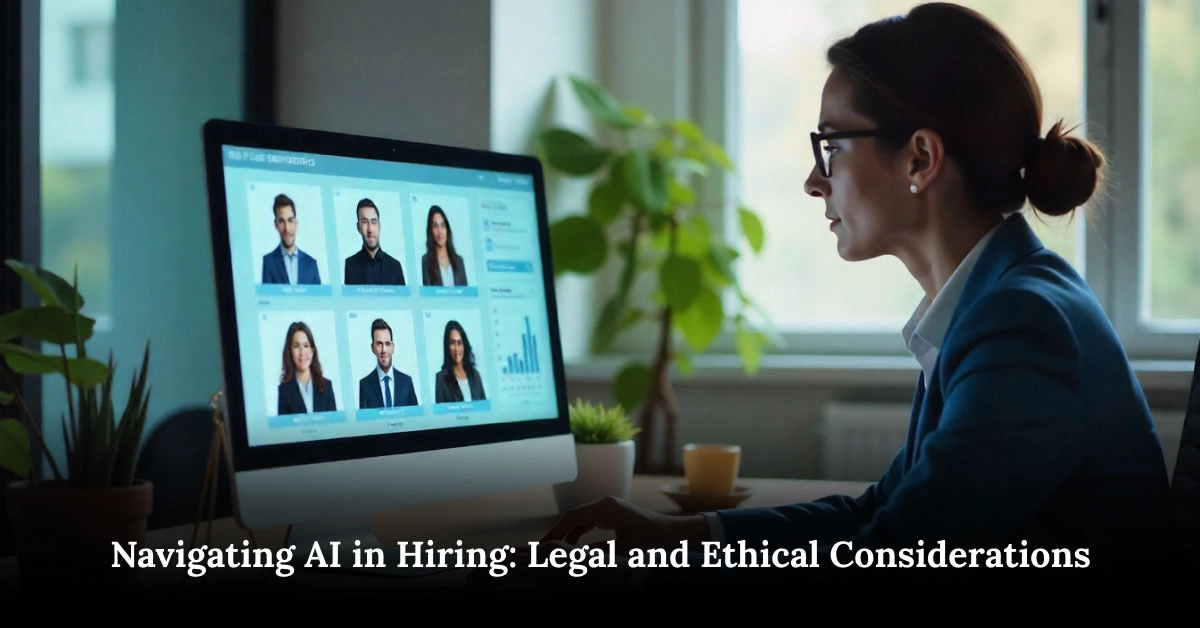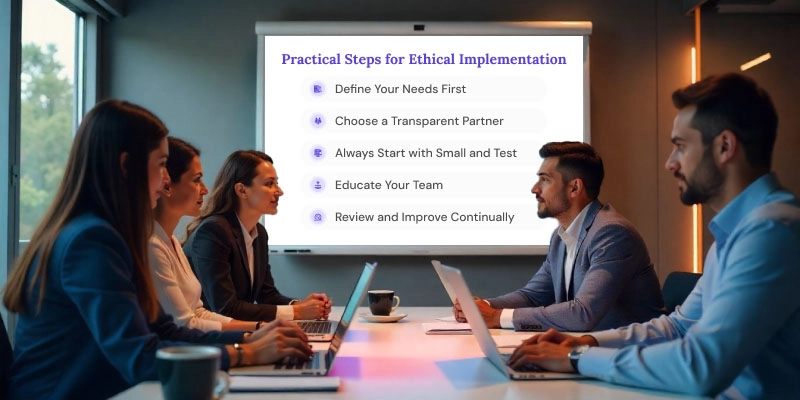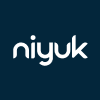Navigating AI in Hiring: Legal and Ethical Considerations

The recruiting landscape has evolved. It’s becoming less common to use a highlighter to go through piles of resumes. We now have incredible tools that use artificial intelligence AI in hiring to find exceptional candidates more quickly than ever. I know it feels like a superpower, but power comes with responsibility.
The speed and efficiency of AI hiring can excite us all but it’s easy to forget about the risks. legal minefields moral dilemmas and the very real risk of making our hiring procedure less rather than more human.
This article serves as your manual. To help you use AI in hiring sensibly morally and without endangering your business well take you through the maze of contemporary hiring.
Let’s discuss how these tools can be used to create a team that is not just faster but also better.
A Day in the Life: How AI Has Changed the Hiring Game
Think about your day. Where does AI hiring show up? It’s probably in more places than you think. Just have a look on some great findings about it here:
1. The First Filter
AI is the intelligent helper that sorts through as many as 100 applications that arrive in your inbox. It saves you a great deal of time and allows you to concentrate on the best applicants by searching for the appropriate qualifications and experience.
2. The Friendly Chatbot
That friendly little chat window on your careers page? That’s probably an AI chatbot. It’s there to answer basic questions and even schedule interviews, so candidates feel heard instantly, even after hours.
3. The Skills Scout
Forget generic screening. AI can perform in-depth skill evaluations or watch video interviews for behaviours providing you with unbiased information that goes beyond a CV.
4. The Future Predictor
You will be highly surprised to know the best fit for your expected job profile, even before knowing or meeting him in actual. That’s what predictive AI does, using data from your past successes to point you toward the candidates who are most likely to thrive in your company.
This all sounds fantastic, and for the most part, it is.
But here’s the thing: these tools are built by humans, and they are trained on our data. If our past decisions were biased, the AI will learn that bias. This is the central challenge that makes the legal and ethical side of AI in hiring so incredibly important.
Outdated Hiring Methods are Holding you Back
Embrace AI in hiring to simplify your process and find better candidates
The Legal Tightrope: Don’t Let AI Lead You to Trouble
Let’s talk about the serious stuff. The law. You’re accountable for every hiring decision you make, even if an algorithm helped you make it. The old laws about discrimination weren’t written for AI, but regulators are now using them to hold companies responsible.
Here’s what you must be watchful for:
1. Unfair Outcomes
The most significant risk is algorithmic bias. Let’s say your AI hiring tool learns from past data from your business which may indicate that men were more frequently hired for a particular position. Subconsciously, the AI may then begin to deprioritize female applicants. Your business is at risk of legal action because even if you didn’t intend to you produced a discriminatory result.
2. The "Black Box" Problem
In case you have used a tool without knowing how it went to its result. That’s the “black box.” Many AI hiring tools are so complex that even their creators can’t easily explain how they made a specific decision. This is a problem because if a candidate sues you for discrimination, you must be able to explain why you made a particular choice. New laws in city like New York are facilitating transparency as legal requirement.
3. Respecting Privacy
A lot of your candidate’s personal information including their resumes test results and video clips is entrusted to you. It is legally needed of you to protect that data. Transparency about the collection, use with storage of data is compulsorily by international laws like the CCPA and GDPR. You must get clear consent and give people the right to control their information.
The bottom line? AI in hiring doesn’t give you a free pass. You are responsible for the end results. Overlooking these legal aspects is a big mistake that could lead your company a great amount of money and its reputation.
Your Team Needs a Fast, More Efficient Process
Leverage AI in recruitment for tasks automation
The Ethical Essentials: Making a Human-First Hiring Process
Beyond the legal stuff, there’s the ethical side of things. It’s about to do the right thing, even nobody is watching your action. Using AI in hiring, isn’t only about speed; it must be about making a fair, more human process. Here’s how you can ensure about the journey of your company is on the right side of history:
1. Humans are Still the Boss
The AI should be your co-pilot. It should give you insights, flag good candidates, and handle the repetitive tasks. A human should always be in the loop to make the final decision. This “Human Loop” model is the most ethical way to work.
2. Constant Checks and Balances
You can’t only “set it and forget it.” You must regularly audit your AI tool to ensure it’s not creating a bias over time. Think of it like a regular check-up for your technology. This regular monitoring is the only way to keep fair hiring process in your case.
3. Be True with Your Candidates
The great way to develop trust is to be transparent. Tell your candidates when and how to use AI in hiring within your process. Explain what the tool is doing. For example, “We’re using AI to help screen the first round of applications to make our process more efficient.” Giving candidates an easy way to ask for a human review if they feel something went wrong is also a fantastic best practice.
4. Diverse Teams Make Fairer Tools
The people who build these tools matter. A dynamic team of developers and data scientists is expected to spot prospective biases in the data they are using to train the AI. This is an easy but powerful way to build a fair tool from the ground up.
Practical Steps for Ethical Implementation
Now, you wish to implement AI hiring. So, here’s a simple, stepwise plan to ensure you are doing it right:

1. Define Your Needs First
Get idea about your problems in detail before going for a tool. Is it too many resumes? Very high time spent on scheduling? Aware about your pain points will support you select the right tool over just buying the first glittering new thing.
2. Choose a Transparent Partner
You assess an AI recruitment vendor, ask them complex questions. How does their algorithm work? What measures do they have in place to prevent bias? Do they provide regular bias audits? A good partner will be delighted to answer such questions and work with you to make sure compliance.
3. Always Start with Small and Test
Begin with a modest pilot project. Utilize the AI tool in a single department or for a non-essential role. Compare the outcomes to your previous approach. This lets you grow and adapt without taking a big chance.
4. Educate Your Team
Your hiring managers, recruiters must be encouraged and directed. They must know the limitations of AI and how to use it as a tool to justify or explain their judgment. This keeps them from losing their human element and putting their blind faith in the technology.
5. Review and Improve Continually
Even after a technology is put into use it still needs to be improved. Review your AI hiring tools results on a regular basis. Are you meeting your hiring targets and observing a rise in diversity? Use this information to boost up your hiring process.
Adopting these steps will ensure that you are using AI in hiring in an ethical and effective way.
Are you worrying about legal side of AI?
Our expert team can help you analyse your current processes
Conclusion
The Way Ahead: Everything About Balance
Hiring in the future isn’t about AI vs. humans. This is Humans and AI. Our jobs can be completed more quickly and effectively thanks to increasingly intelligent tools. We need to use them wisely though. We can leverage the amazing potential of AI hiring to create more inclusive diverse and powerful teams by being aware of the legal ramifications adhering to our ethical standards and always keeping a human in the loop. The topic of discussion is how to use AI in hiring in a way that feels right and benefits everyone not if we should use it at all.
For more doubts and requirements, understanding you can drop an email to us at: info@niyuk.ai
Frequently Asked Questions
1. What are the key legal risks of using AI in hiring?
In other words, your greatest legal risk is if your AI inadvertently discriminates. Should a tool exclude applicants since their gender age or ethnicity without being instructed to do so your business may be held accountable. Additional dangers include improperly protecting candidate data and not being able to defend the AIs decision-making which could be problematic in the event of a lawsuit.
2. Can AI hiring tools eliminate human bias entirely?
Nice idea but no. Because AI hiring tools learn from our historical data, they are still subject to human bias. The AI will pick up on and replicate any biases that were present in your company’s previous hiring practices. It is impossible to completely eradicate bias, but it can be significantly reduced by establishing a more methodical and impartial procedure that always includes a human for a last-minute check.
3. How to use AI in hiring?
AI should not be used as a substitute but rather as a trusted assistant. Let it take care of the tedious repetitive tasks like interview scheduling resume screening and standard question replying. This allows you to focus on what people do best which is establish rapport evaluate soft skills and reach a final decision. Always make sure that the final decision about hiring is made by a human.
4. How should companies communicate AI use to candidates?
You may Inform those candidates about your use of AI in hiring for tasks like interview scheduling and resume screening on your careers page, may be in the job application itself. Inform the candidates that, it will make you more effective and equitable. Being honest increases trust and creates a more transparent process both. These are very beneficial to your employer brand for the future.
